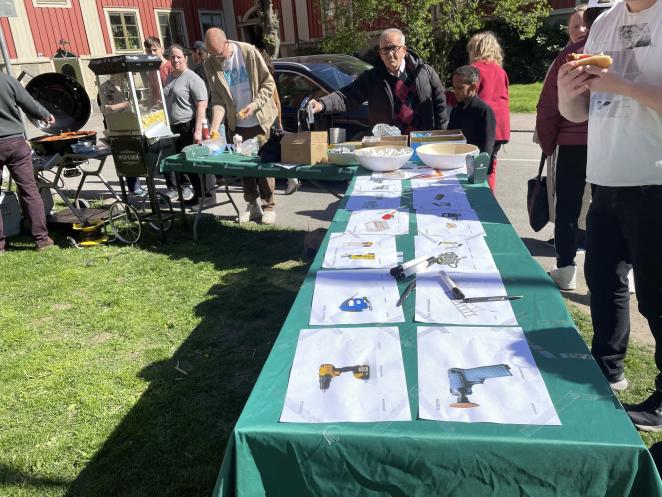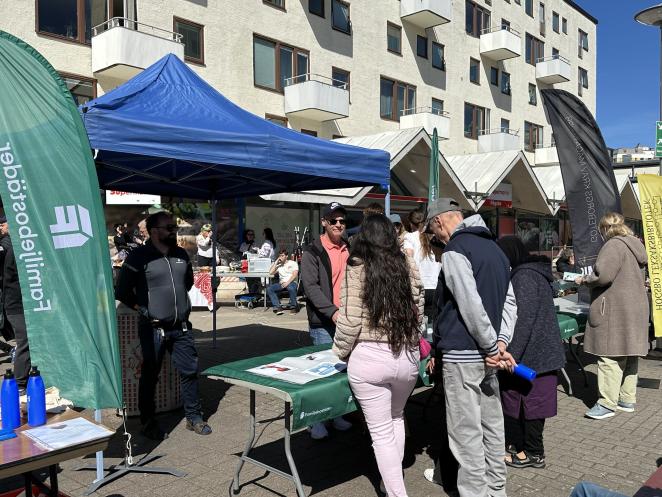To overcome the common challenge of convincing citizens to attend co-creation events, Swedish social housing provider Familjebostäder turned their latest workshop into a community lunch.

Shaping what gets shared
Last week, the team at Familjebostäder fired up the barbecue to bring neighbours together and engage residents in the design process for their forthcoming urban sharing stations. The informal, friendly setting encouraged conversation and participation, allowing residents to share their views in a relaxed way. Over hotdogs and popcorn, people discussed what kinds of tools, equipment, or household items they would find most useful to access through borrowing rather than buying.
Events like this show how co-creation can play a vital role in shaping successful community initiatives. When residents are actively involved in the design stage, they are more likely to feel ownership over the final result. Each housing community has its own habits, routines, and needs, and understanding these differences early on can make all the difference. By identifying what people actually want and will use, Familjebostäder increases the chances that the sharing stations will become a natural, well-used part of everyday life.

Building Circular Communities
As part of the Digital Kiosks project, Familjebostäder is testing three sharing stations in their apartment buildings. The goal is to improve the buildings’ circularity—reducing waste and encouraging more sustainable consumption patterns. Instead of buying items that spend most of their time gathering dust in cupboards, tenants will have the option to borrow them when needed. This simple idea supports both environmental responsibility and a stronger sense of community, as neighbours come together around shared resources.
The work is supported by the Interreg North Sea Programme, which helps cities and housing providers across the region experiment with new ways of living more sustainably. Through small but meaningful initiatives like this, Familjebostäder is showing how collaboration, creativity, and community spirit can make circular living both practical and enjoyable.
